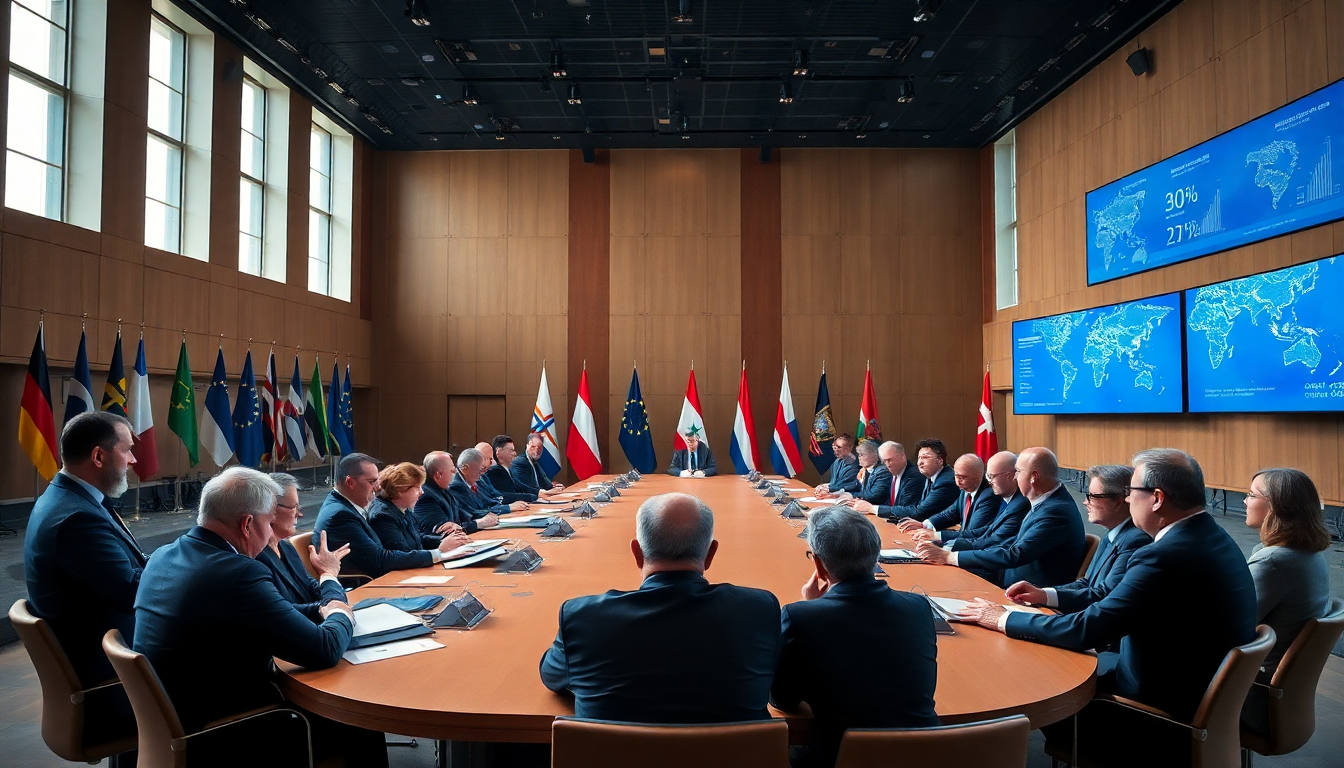Table of Contents
At a recent NATO summit, Ukrainian President Volodymyr Zelensky made a compelling case for Europe to come together in the face of a complex and evolving threat that goes well beyond just Russia. He stressed that the ongoing conflict in Ukraine is not just a local issue; it’s a crucial matter affecting the security of Europe as a whole. This call for unity among European nations and their allies marks a significant moment in the geopolitical landscape, as various state and non-state actors work together to create instability across the continent.
Understanding the Broader Network of Aggression
Zelensky’s comments highlighted the intricate challenges Europe is grappling with today. He pointed out that the threat isn’t confined to Russia; it also involves a wide array of nations, including North Korea, Iran, and several Chinese companies. This coalition, according to Zelensky, is actively supporting Russian military actions against Ukraine. His assertion that these connections need to be cut off to effectively counteract aggression resonates deeply in today’s geopolitical climate. Doesn’t this make you wonder how interconnected our world really is?
The Ukrainian leader emphasized that the complexity of this network presents a serious challenge to European security, demanding a united front in response. By framing the situation as a coordinated effort among multiple aggressors, Zelensky called for a cohesive strategy that includes not just military readiness but also economic and logistical support to strengthen Ukraine’s defense capabilities. After all, isn’t it time for Europe to defend its values more vigorously?
The Call for Increased Investment and Collaboration
During his address, Zelensky urged European nations to boost their investments in Ukraine, especially in defense and joint weapon production. He argued that these initiatives would not only enhance Ukraine’s military capabilities but also fortify Europe’s overall security framework. By fostering a collaborative approach, Europe can better shield itself against threats arising from this existing network of aggressors. How can we expect to face challenges today without teamwork?
This rallying cry underscores the significance of collective defense strategies in an age where the definition of security is constantly shifting. Zelensky’s insistence on dismantling the connections that fuel Russian aggression aligns with NATO’s broader objectives, emphasizing the need for a comprehensive response to a multifaceted challenge that crosses national boundaries. Isn’t it fascinating how interconnected our security really is?
Looking Ahead: The Future of European Security
The implications of Zelensky’s statements stretch far beyond immediate military tactics. They hint at a fundamental shift in how Europe needs to approach security in an increasingly complex world. The interconnected nature of global threats today means that effective responses require collaboration across various sectors, including technology, intelligence, and economic support. European nations must stay vigilant and proactive, not just in military spending but also in nurturing partnerships that tackle the root causes of instability. Isn’t it time for us all to think about how we can contribute to global peace?
As the landscape of European security evolves, Zelensky’s call for unity is a crucial reminder of the power of alliances in sustaining peace and stability. By reinforcing their commitments to one another, European nations can create a more resilient defense posture capable of tackling the challenges that await. Are we ready to stand together in the face of adversity?


